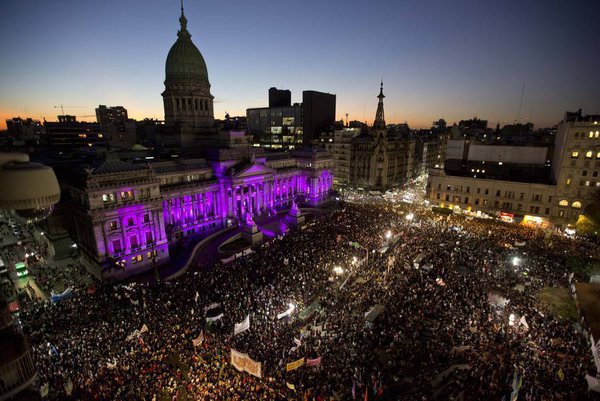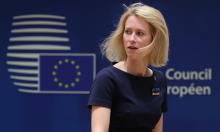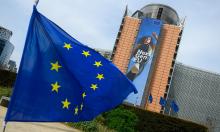One year mark of landmark meeting on gender equality and women's empowerment
Robust actions mount, at one year mark of landmark meeting on gender equality and women's empowerment

Countries mobilize to address the daily challenges faced by women and girls worldwide
New York, 27 September 2016- One year since the historic gathering of over 70 world leaders at the United Nations committed to putting gender equality at the top of their agenda, momentum continues to rise as early results come in. Countries across the world-from Argentina to Burundi, from China to Costa Rica and the United States of America-are galvanizing their efforts to address gender equality gaps by adopting concrete and robust actions, which strive to remove the barriers and discrimination women and girls face in their daily lives and level the playing field for opportunities and resources.
Impetus for growing mobilization
The impetus for the growing mobilization comes as result of pledges made by Heads of State and Government last year as they convened at the "Global Leaders' Meeting on Gender Equality and Women's Empowerment: A Commitment to Action" event. The historic Global Leaders' Meeting on Gender Equality and Women's Empowerment, during the UN Summit on Agenda 2030 and the Sustainable Development Goals, brought together an extraordinary number of more than 70 world leaders for one powerful purpose: to commit to eliminating gaps in gender equality and the empowerment of all women and girls. This strong political call to action gained traction, with close to 100 countries stepping forward to announce concrete commitments for women and girls.
The Global Leaders' Meeting was held to mark the closing of a two-year review process to determine the status of implementation of the Beijing Declaration and Platform for Action on its 20th anniversary. Steered by UN Women, a record 167 countries undertook national reviews that assessed progress and gaps, and outlined new national priorities and actions to accelerate the achievement of women's empowerment and gender equality. Member States agreed that no country has achieved gender equality and women's empowerment. The bold clarion call put forth at the global meeting was: Planet 50-50 by 2030: Step It Up for Gender Equality! Leaders agreed that the Sustainable Development Goals with its timeline of 2030 cannot be achieved without gender equality. Their national commitmentsaddressed some of the most pressing challenges women face, from the need to urgently end the pandemic of violence against women and girls, to boosting women's economic empowerment and role of women in peace and security, to focusing on unpaid care work and the gender pay gap.
Dozens of countries are stepping up action
Marking the one year period, reports indicate that dozens of countries across Asia-Pacific, Europe, Africa and the Americas are stepping up action to deliver on the promises made, through launching National Action Plans to end violence against women, adopting legislation, initiatives and public awareness campaigns to combat sexual violence and improve support for survivors (Argentina, Burundi, Denmark, Georgia, Latvia), instituting support to civil society organizations and women's groups( Bosnia and Herzegovina, Cyprus), ensuring women's economic empowerment through support to women's entrepreneurship, promotion of maternity protection and paternity leave, and measures targeting gender pay gap (China, Estonia, Mexico, New Zealand, United States of America); strengthening mechanisms to gather gender data (Costa Rica, Thailand); and allocating Official Development Assistance and foreign policy initiatives to addressing gender equality and women's empowerment (Italy, Ireland, Norway). Efforts have been made to boost women's representation in elected bodies (Armenia, Jordan, Luxembourg), embedding gender issues into the Budget Bill and boosting gender-responsive infrastructure (Sweden, Japan).
"From this one-year review we can see that global leaders are taking their accountability for progress towards a 50-50 Planet seriously," said UN Women Executive Director, Phumzile Mlambo-Ngcuka. "The range of national actions reported include creative ways in each country to accelerate the attainment of women's rights and gender equality. This is both timely, and critical. We hope to see substantial changes for women and girls already by 2020, especially for those with furthest to go. The South-South cooperation commitments are especially important and show that we are tackling the 2030 Agenda as a global community."
Country updates can be accessed here.
UN Women is the UN organization dedicated to gender equality and the empowerment of women. A global champion for women and girls, UN Women was established to accelerate progress on meeting their needs worldwide.
Subscribe to Pravda.Ru Telegram channel, Facebook, RSS!





